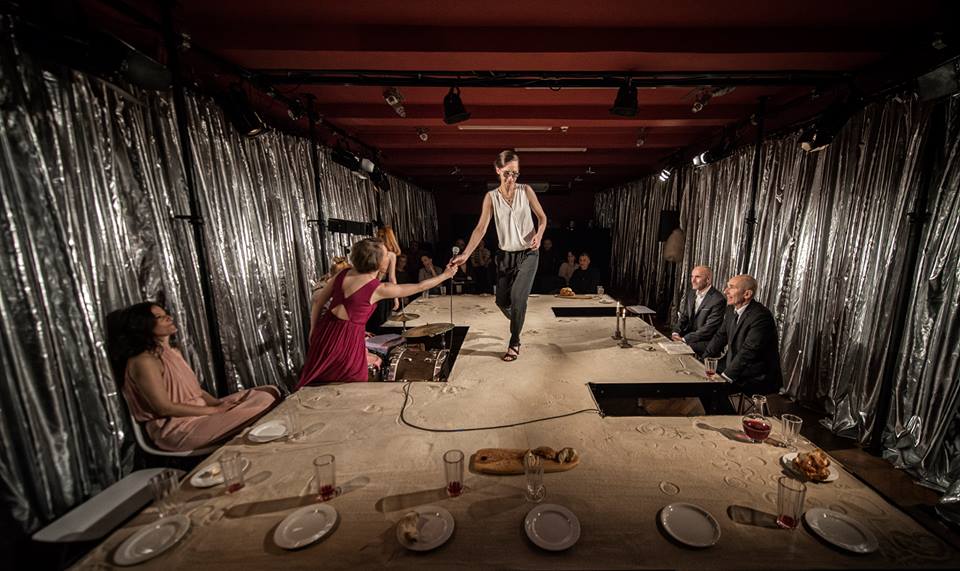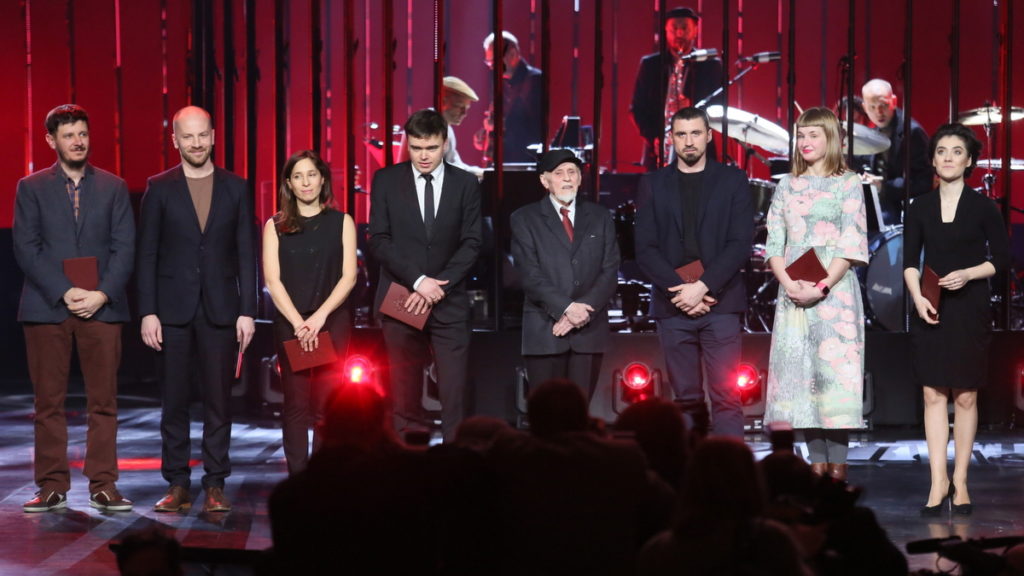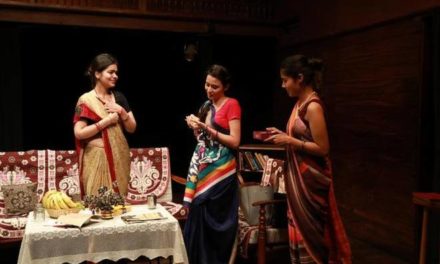The French-Polish director Anna Smolar, born in 1980, was awarded the 2016 Polityka Passport in Theatre on January 10, 2017. One of Poland’s most prestigious honors, the Passport prizes are given annually by the popular news weekly Polityka in categories related to art, music, literature, and theatre. The magazine’s statement on Smolar’s award recognized three of her recent productions: Jewish Actors with the State Jewish Theatre in Warsaw; The Dybbuk, which premiered at Teatr Polski in Bydgoszcz; and Henrietta Lacks at Warsaw’s Copernicus Science Center, co-produced by Nowy Teatr.
Smolar has been active in theatre for more than a decade in both Poland and Paris, where she was raised, attended university, and founded the theatre company Gochka. Since assisting directors such as Krystian Lupa and collaborating on a play with the film director Agnieszka Holland, she has worked at many of Poland’s major theatres. Like those mentioned by Polityka, Smolar’s productions range widely in source material. She has directed French, Polish, and other world theatre texts—from the 1893 French Symbolist drama The Exchange by Paul Claudel to Richard Shannon’s The Lady of Burma, a one-woman play about the Nobel laureate Aung San Suu Kyi, written in 2003. Smolar has also translated plays between French and Polish and directed performances for children; her Pinocchio (2014) at Nowy Teatr presented the familiar character as a free-thinking rebel.

Anna Smolar. Photo credit: Leszek Zych, Polityka
Two of Smolar’s projects noted by the Passport prize explore Jewish topics. Jewish Actors (Aktorzy żydowscy, 2015), written and with dramaturgy by Michał Buszewski, engages actors from the State Jewish Theatre on the idea of Jewish theatre in Poland today. The obliteration of Poland’s Jewish population by the Nazis during World War II was an irrevocable loss not only for the country, but for its historically vibrant Jewish theatre. The State Jewish Theatre—named for Ida Kamińska, its first artistic director and a grande dame of the Yiddish stage—has, since 1950, sought to preserve its pre-war traditions. The theatre is one of only two in Europe that still produce Yiddish dramas in the original language, and it also presents classic texts on Jewish themes, as well as cabaret-style revues. To open Jewish Actors, the mixed Jewish and non-Jewish ensemble performs a Jewish ritual, sharing bread and wine with the audience to unite everyone present in the play’s complex cultural questions. Last year, Jewish Actors took the Main Prize at the Kontrapunkt festival and won Best Acting Ensemble at the Kalisz Theatre Meetings.

Jewish Actors, dir. Anna Smolar. Photo credit: Magda Hueckel
The Dybbuk, the story of a young Jewish woman who is possessed by a restless spirit just before her wedding, was written in Russian by S. An-ski—the pseudonym of the Belarusian Jewish writer, activist, and ethnographer Shloyme Zanvl Rapoport, who also translated his drama into Yiddish. After its popular 1920 Warsaw premiere, the Jewish Vilna Trup toured its production of The Dybbuk to Yiddish theatres around Europe and worldwide. But the play, which would garner international acclaim and be translated into 12 languages, was for many years performed only rarely on Polish stages. Andrzej Wajda’s 1981 production at the National Theatres of both Poland and Israel, however, sparked increasing performances of the play in Poland. For Smolar’s Dybbuk, Ignacy Karpowicz has woven in new text about a young man who commits suicide, and the adaptation unfolds from a self-consciously theatrical start. The actors, who stand before the curtain in stark makeup, play with staged technical difficulties and pause to explain the play’s Jewish terminology. Ultimately, this Dybbuk, which won Smolar the directing prize at the 2016 Polish Contemporary Art Exhibition, probes the meaning of the play within the Polish canon now.

The 2016 Passport prizewinners at the National Opera in Warsaw. From left: Michał Staniszewski, Wacław Zimpel, Anna Smolar, Jan P. Matuszyński, Jan Ptaszyn Wróblewski, Daniel Rycharski, Natalia Fiedorczuk-Cieślak, and Marzena Diakun. Photo credit: PAP/Leszek Szymański
In its announcement of Smolar’s award, Polityka describes her theatre practice as “intimate and empathetic,” praising the director for “taking on, with eloquence and humor, topics that have been pushed to the margins.” Smolar is the 11th woman to win the Passport in Theatre, a number that equates to almost half of the awards given in this category since the program was launched in 1993. Last month, at the Paris Festival d’Automne, Smolar participated in a debate among five Polish women theatre directors, titled “The Fatherkillers.” A video HowlRound produced of this event can be viewed below.
This post was written by the author in their personal capacity.The opinions expressed in this article are the author’s own and do not reflect the view of The Theatre Times, their staff or collaborators.
This post was written by Lauren Dubowski.
The views expressed here belong to the author and do not necessarily reflect our views and opinions.

















